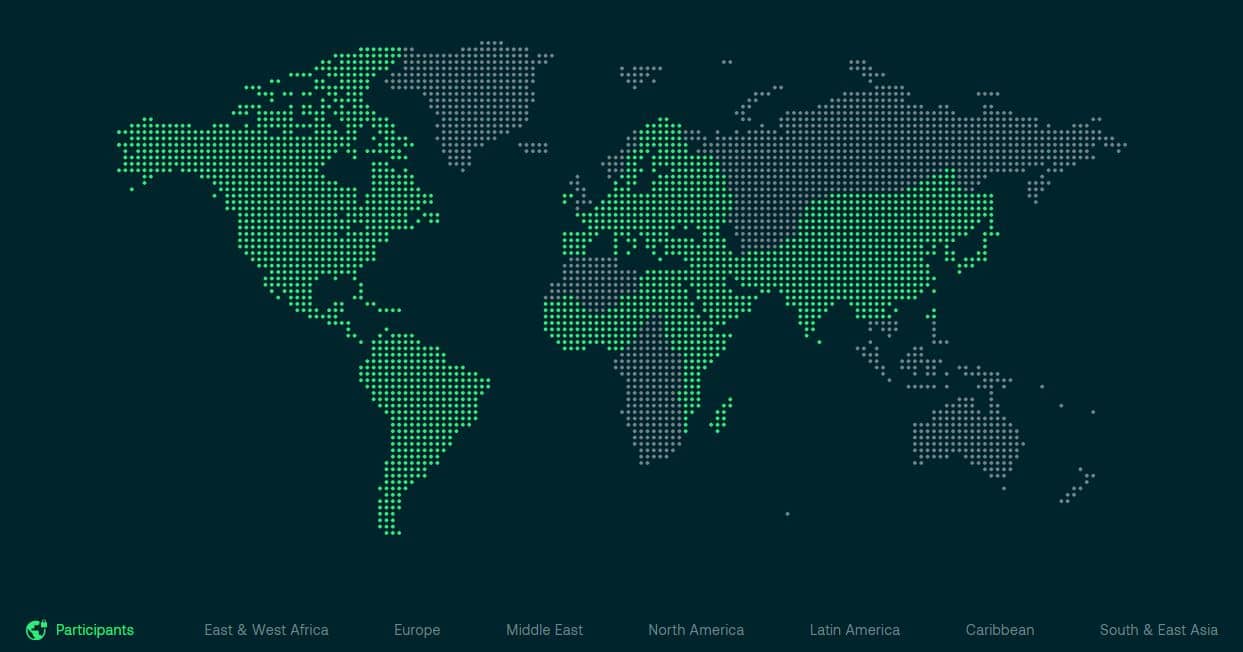The World Bank, along with the International Emissions Trading Association (IETA) and the government of Singapore, launched a new carbon credit platform “CAD Trust” to clean up the market and integrate several registries.
The founding partners call the new global tracking system Climate Action Data Trust or CAD Trust. The goal is to bring transparency to the carbon credits market and aid countries to raise climate finance faster and more affordable.
President and CEO of IETA Dirk Forrister remarked:
“Today’s launch of the CAD Trust marks a significant step in the evolution of carbon markets. It will lead to the creation of a centralised, accessible and secure digital infrastructure that national governments and private businesses can rely upon as they expand carbon markets to meet their net zero goals. This system will provide the integrity and public trust necessary for scaling up investment in climate action…”
The Need for Transparency
Polluters can offset their emissions to achieve their net zero targets. Offsetting means buying carbon credits generated from projects that avoid or remove carbon from the air.
Governments have been struggling to come up with rules for trading compliance carbon credits. Still, projects are developed to produce those credits and governments are establishing registers to track them.
In the private sector, many initiatives have emerged to deliver credits for the voluntary carbon markets (VCM). Nonprofit registries like Verra and Gold Standard are accrediting and monitoring the credits.
But critics of the market continue to raise concerns over poor transparency, limited supply, and quality of the projects.
Enter the new carbon credit database and tracking system – the CAD Trust.
The Climate Action Data Trust (CAD Trust)
The CAD Trust seeks to fix those issues by integrating all the carbon credit project’s data in one place and making it available to the public for free. Its launch comes as the latest round of global talks on rules for carbon markets under the Paris Agreement’s Article 6 at the COP27 summit ended in deadlock, again.
Speculators warned that some countries are pushing for frameworks that can’t prevent double counting carbon credits towards climate goals.
Chandra Shekhar Sinha, Adviser of the Climate Change Group at the World Bank said:
“… We hope that CAD Trust becomes a critically important source of data by connecting registry systems of the voluntary and compliance carbon markets to bolster transparency and accountability in these markets to meet corporate needs and to further the implementation of the nationally determined contributions that sit at the heart of the Paris Agreement…”
CAD Trust evolved out of the Climate Warehouse initiative developed and managed by the World Bank. It’s a culmination of 3 years of work and prototyping of a series of simulations of carbon data aggregation. That involves 30 participating organizations, 11 national governments, and 58 testing sessions.
CAD Trust uses distributed ledger technology to create a decentralized record of carbon market activity. The aim is threefold:
- avoid double counting
- increase trust in carbon credit data, and
- build confidence in carbon markets
The new initiative will engage with various governments as well as private organizations.
Their collaboration will help set the specifications for an open-source metadata system that can share information about carbon credits and projects across various digital platforms. This is to ease the future integration of multiple registry systems and make it easier for companies and countries to share data.
For instance, the new carbon credit platform will allow Bhutan to save around $1 million in market access costs. One of Bhutan’s Ministry of Economic Affairs officers said that “It really helps us leapfrog the entire learning process.”
He also added that using the CAD Trust of the World Bank means Bhutan can begin selling carbon credits in 2023. That’s one year earlier than if the nation hadn’t accessed the system.
The CAD Trust Council
The World Bank and partners also announced the formation of the CAD Trust Council. It will be in Singapore tasked to guide the strategic direction of the CAD Trust.
The Council consists of representatives from the following countries and registries:
- Bhutan,
- Chile,
- Japan,
- Senegal,
- Singapore,
- United Kingdom,
- Verra,
- Gold Standard,
- American Carbon Registry, and
- Global Carbon Council.
They will work closely with CAD Trust, give it strategic direction, and ensure it achieves its goals. A big part of that goal is to ensure that carbon credits are delivering promised emissions reductions.


